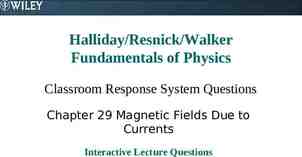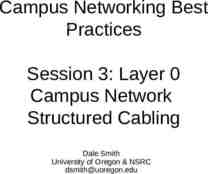HIDDEN DESCRIPTION SLIDE — NOT TO BE SHOWN TO THE PUBLIC Basics
21 Slides2.10 MB

HIDDEN DESCRIPTION SLIDE — NOT TO BE SHOWN TO THE PUBLIC Basics of Mutual Fund Investing Catalogue code: B18 Full presentation or module? Presentation Slide numbers: B18-1 to B18-21 Registered/Non-Registered Usage: Used by all — send to Brandon to confirm (Choices: registered rep use only, not for registered rep use, allowed for all, partial limitations) Last update info: Date updated: 2015-04-29 Project #18001 Description of changes: Filed with FINRA? No Notes: If yes, date:

Basics of Mutual Fund Investing B18-1

Basics of Mutual Fund Investing Financial Activities Spending Saving Investing B18-2

Basics of Mutual Fund Investing Financial Activities Spending Daily needs Things we want Saving Investing B18-3

Basics of Mutual Fund Investing Financial Activities Spending Saving Storing money away Used for emergencies and short-term goals Concerned with maintaining principal and avoiding risk Investing B18-4

Basics of Mutual Fund Investing Financial Activities Spending Saving Investing Desire to be more faithful stewards Used for longer-term goals Willingness to risk investment principal for the potential for higher returns B18-5

Basics of Mutual Fund Investing Investment Asset Classes Cash equivalents Bonds Stocks B18-6

Basics of Mutual Fund Investing Cash Equivalents Short-term debt securities that pay a modest return with an emphasis on maintaining principal Historically, least volatile investment with lowest returns Return is predominately from interest B18-7

Basics of Mutual Fund Investing Cash Equivalents Factors that impact cash equivalents: Inflation Interest rates Types of cash equivalents: Bank savings accounts CDs U.S. Treasury bills Money market accounts B18-8

Basics of Mutual Fund Investing Bonds Loan that investors make to corporations, governments or government agencies Historically, not as volatile as stocks but fluctuate more in value than cash equivalents B18-9

Basics of Mutual Fund Investing Bonds If held to maturity, return is from interest payments received and payment of face value If sold before maturity, return is from interest payments received and difference between purchase price and sale price B18-10

Basics of Mutual Fund Investing Bonds Factors that impact bonds: Interest rates Credit/default risk Inflation Market influences Characteristics of bonds: Maturity Yield Credit quality Issuer B18-11

Basics of Mutual Fund Investing Stocks Represent ownership in a corporation Historically, stocks provide the highest longterm returns but with the greatest risk Return consists of income (dividends) and appreciation or depreciation of stock price B18-12

Basics of Mutual Fund Investing Stocks Factors that impact stock prices: News about the company Economic news and forecasts Interest rates Investor confidence Characteristics of stocks: Capitalization Style Origination B18-13

Basics of Mutual Fund Investing Mutual Funds Companies that pool money from investors and invest in a diversified portfolio of securities B18-14

Basics of Mutual Fund Investing Mutual Funds Professional management Diversification Affordability Liquidity B18-15

Basics of Mutual Fund Investing Mutual Funds Advantages: Professional management Diversification Affordability Liquidity B18-16

Basics of Mutual Fund Investing Mutual Funds Disadvantages: Lack of control Price uncertainty Costs despite negative returns B18-17

Basics of Mutual Fund Investing Mutual Funds Categories: Money market funds Bond funds Stock funds B18-18

Basics of Mutual Fund Investing Mutual Funds Ways funds earn money: Dividend payments Capital gains distributions Increase in net asset value B18-19

B18-20






